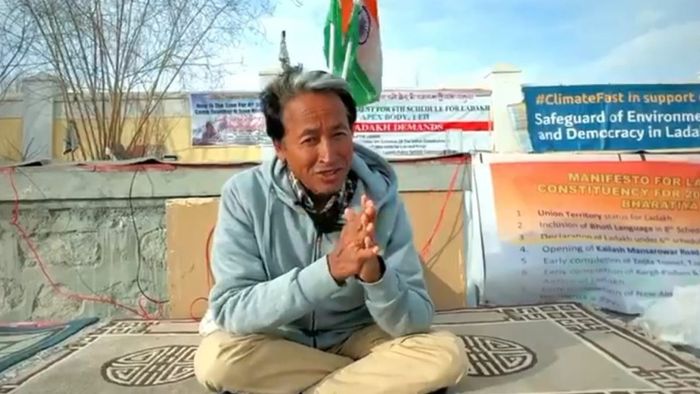Section 144 imposed, internet curbed ahead of Sonam Wangchuk's 'Pashmina March' in Leh
Ahead of Sonam Wangchuk's protest march in Leh against alleged Chinese incursions, the administration has imposed Section 144 and internet restrictions. Despite the preventive measures, Wangchuk remains determined that thousands will join the march.

- Apr 06, 2024,
- Updated Apr 06, 2024, 11:54 AM IST
Ahead of climate activist Sonam Wangchuk's planned 'Pashmina March' in Leh on Sunday the administration has taken preventive measures, including the imposition of Section 144 and internet restrictions.
The District Magistrate, Santosh Sukhadeve, issued an order citing reliable indications of potential breach of peace and public tranquility in Leh district. Section 144 of the Criminal Procedure Code (CrPC) has been invoked, prohibiting processions, rallies, marches, public gatherings and the use of loudspeakers without prior approval.
Wangchuk's 'Pashmina March' is intended to protest alleged Chinese incursions into grazing areas of Ladakh and to highlight the region's ground realities. However, concerns over potential disturbances have prompted the administration to take preemptive actions.
Additionally, the administration announced a reduction in internet speeds, citing the possibility of misuse of mobile data and public WiFi facilities to incite and provoke the public. Mobile data services are to be reduced to 2G temporarily, affecting 3G, 4G, 5G and public WiFi facilities in Leh city and surrounding areas from 6 pm on Saturday to 6 pm on Sunday.
Wangchuk, who recently ended a 21-day hunger strike for Ladakh's statehood and the rights of its tribal population, criticized the administration's actions, accusing it of attempting to intimidate participants and pressure them to sign bonds.
Despite the administration's efforts to dissuade participation, Wangchuk remains determined, stating that thousands would join the march to the border area. He alleges that over 4,000 square kilometers of land have been encroached upon by China.
The activist has called for non-cooperation movements if demands for Ladakh's statehood and inclusion in the Sixth Schedule of the Constitution are not met. While Ladakh was carved out as a separate Union territory in 2019, demands for statehood and constitutional safeguards have persisted, leading to ongoing protests and negotiations with the central government.